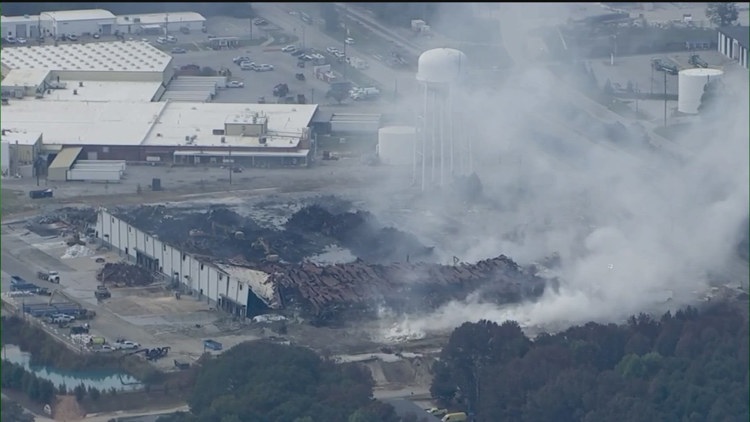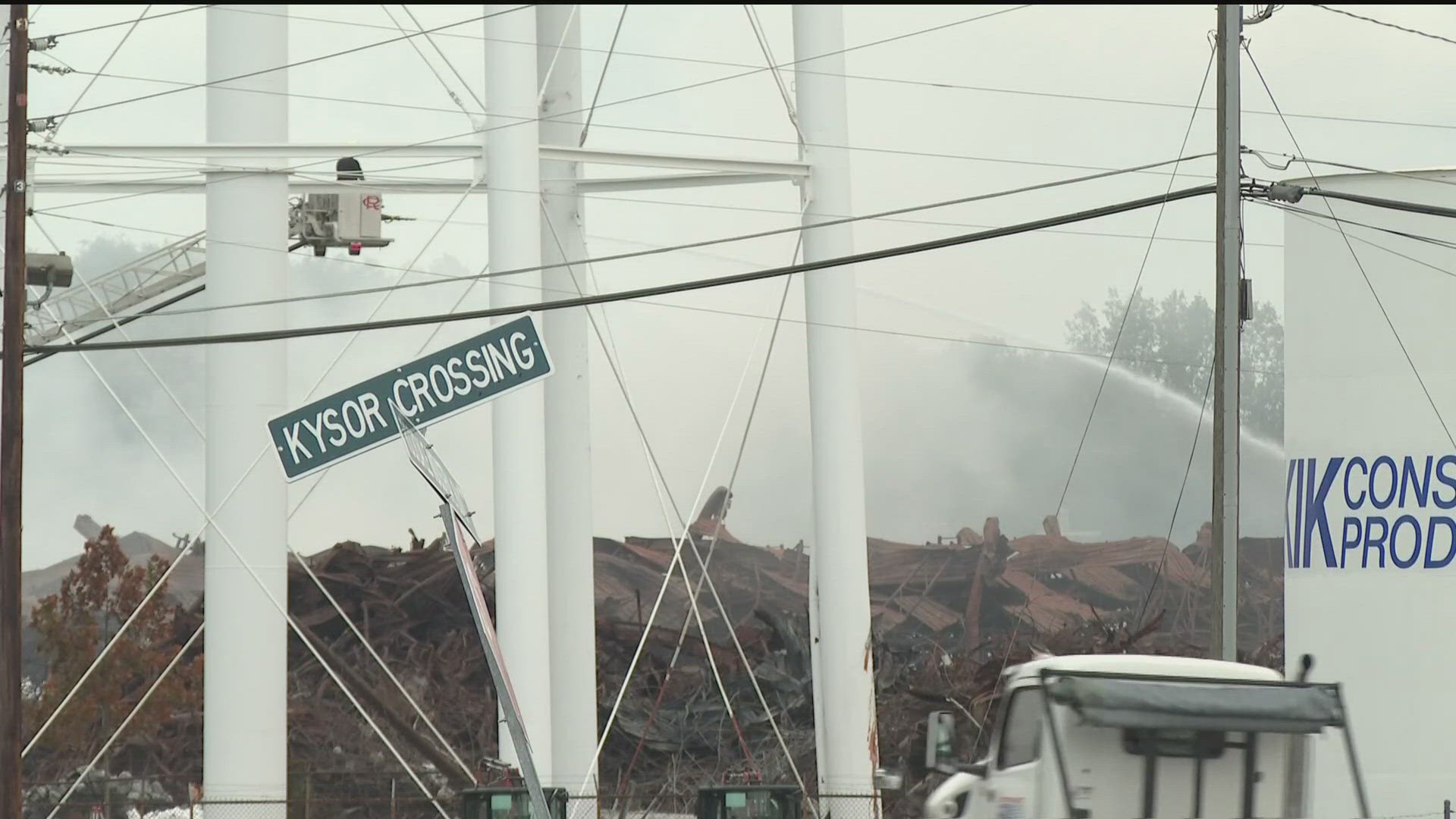ROCKDALE COUNTY, Ga. — Residents are growing frustrated as the chemical plume continues off-gassing after a fire broke out at the BioLab facility in Conyers over the weekend.
The fire was put out Sunday, but a reaction triggered by sprinkler system water pouring onto pool shock chlorination product at the BioLab facility in Conyers has continued to produce the plume.
Cleanup has already started, but as firefighters continue cleaning the product, it could continue off-gassing for several days. The cleanup completion timeline is still unknown.
Schools and businesses are feeling the impacts of the plume spreading across the county and parts of metro Atlanta, with some schools having virtual learning days and moving outdoor activities indoors.
As more residents continue searching for answers, Rockdale County released some answers to frequently asked questions their office is getting.
Frequently asked questions
What chemicals are detected in the air?
- Chlorine
- Chloramine
- Chlorine compounds
Officials said that chlorine levels are currently safe, but residents could still experience symptoms due to exposure.
The Environmental Protection Agency also detected and is monitoring:
- Carbon Monoxide
- Hydrogen Chloride
- Phosgene
Is the water safe?
Yes, according to the county, they test the water three times daily, and all results have returned safe levels.
It added that the water streams downstream from the facility do not feed into the Hanes Watershed, which is the source of the county's drinking water.
Why is shelter in place only for the evening?
County officials said that because the sun hears the Earth's surface during the day and warms the ground, but in the evening, the ground loses heat and cools the surface.
A process called inversion happens, which traps air and pollution closer to the ground, which can cause unhealthy spikes in air quality, according to the county.
The shelter-in-place is at 7 p.m. when the sun starts to set. It ends at 7 a.m. when the sun begins to rise.
What are the possible reactions to chlorine compounds?
- Irritation of eyes and airways
- Coughing
- Shortness of breath
- Difficulty breathing
- Chest tightness
- Scratchy throat
- Irritated sinuses
- Headaches
- Stinging eyes
- Runny nose
People with heart disease could experience:
- Chest pain
- Heart palpitations
- Shortness of breath
- Fatigue
People with lung disease could also experience:
- Coughing
- Phlegm
- Chest discomfort
- Wheezing
- Shortness of breath
What do you do if you are feeling sick?
- Stay indoors
- Keep windows and doors closed in the home.
- Use an air conditioner only if it recirculates indoor air.
- Those with weakened immune systems should stay indoors
- If you have asthma or lung issues, follow the doctor's advice.
- Follow local emergency guidelines.
Those who are experiencing symptoms should contact their healthcare provider or the Georgia Poison Center at 404-856-6252.



